
Composer and pianist Magnus Granberg developed this delicately introspective work as a collaboration between his Skogen ensemble and cellist Leo Svensson Sander & harpist Stina Hellberg Agback, concerning the development of art in times of crisis, using Messiaen's "Quatuor pour la fin de temps" (Quartet for the End of Time) as a basis, and brought into focus by actual pandemic.
Out of Stock
Quantity in Basket: None
Log In to use our Wish List
Shipping Weight: 3.00 units
Sample The Album:
Anna Lindal-violin
Eva Lindal-violin
Stina Hellberg Agback-harp
Magnus Granberg-prepared piano, composer
John Eriksson-vibraphone, glockenspiel, whistling
Henrik Olsson-objects, friction, piezo
Erik Carlsson-percussion
Click an artist name above to see in-stock items for that artist.
Label: Another Timbre
Catalog ID: at188
Squidco Product Code: 31497
Format: CD
Condition: New
Released: 2022
Country: UK
Packaging: Cardboard Gatefold
Recorded at Atlantis, in Stockholm Sweden, on June 30th, 2021, by Niclas Lindstrom.
Another Timbre Interview with Magnus Granberg
Can you tell us about 'How Lonely Sits the City'. Where does the title come from, and are you adapting/transforming existing musical pieces in the composition, as you have in previous pieces?
In September 2019 I was asked by cellist Leo Svensson Sander and harpist Stina Hellberg Agback if I would be interested participating in a project together with them, violinist Eva Lindal and a couple of visual artists, a poet and a scenographer, which would deal with questions concerning how to make art in times of crisis, something I gladly and curiously accepted. The project would take Messiaen's 'Quatuor pour la fin de temps' and its genesis, creation and historical context as a point of departure when reflecting on questions on how and why to make art in our present time and its escalating climate crisis. The project received some funding from a couple of Swedish institutions and we were just about to start working when the pandemic quite suddenly broke out in late February or early March 2020. All of a sudden we found ourselves in a situation which affected our working conditions more profoundly than we ever had expected in the short term and which not only had us reflect on the above mentioned questions but rather forced us to quickly adapt to the changing situation. So at the time when I was about to start writing some music for the project, societies all over the world were more or less closing down and I was quite struck by all these pictures of more or less deserted or abandoned cities from all over the world that were being broadcast and reproduced during the initial period of the pandemic. So, quite inevitably the first verse of the book of Lamentations came to mind, "How lonely sits the city that was full of people!", a text which of course also has been set to music innumerable times throughout history and which also became the title of my piece. So with these two different points of departure, Messiaen on the one hand and the Lamentations on the other, I started to conceive of the piece and in the end I ended up using mainly tonal material (basically a few scalar motions which I transformed into new modes) but also a couple of rhythmic cells from Messiaen's piece, and some further rhythmic materials from Thomas Tallis's and William Byrd's different takes on the Lamentations of Jeremiah as points of departure for generating new musical materials. When starting to conceive the piece I was also very touched and inspired by the recurring (and always slightly altered, if I remember correctly) melody played by the flugelhorn in Stravinsky's Threni, which has some sort of counterpart in an extended melody in slightly shifting meters in my piece as well. The original version of the piece was written for a quartet consisting of violinist Eva Lindal, cellist Leo Svensson Sander, harpist Stina Hellberg Agback and myself on piano, but since we also wanted to do something with Skogen during the pandemic I just decided to write some additional parts for us to play and record.
That's a remarkable circumstance, with the theme of the artistic project turning out to be prophetic. I don't think of your music as containing, or being engaged with, any kind of social commentary, but in this case do you think that the sense of societal crisis did affect the music you were writing in some way (other than the pieces it uses as its source)?
No, I'm generally quite sceptical and doubtful when it comes to musics need or even ability to convey or subordinate to these kinds of extramusical concerns in a time where at least I have a hard time seeing that there would be anything even close to a general agreement on the literal meaning or effect of certain musical notes, modes, tropes, gestures or structures etc, as compared to, say, the Affektenlehre of the Baroque era or the philosophy and aesthetics of North Indian music, for example. From my perspective I think any social or political implications perhaps rather would be found in how the music itself works; how it is organised, what the relations are between composers, conductors and musicians and the position of the music and its practitioners within a wider social context. And from an ecological perspective I guess that perhaps quite simply would translate to how music making in all its various aspects relates to nature and to the use of natural resources, for example.
The line-up for Skogen in this piece is slightly smaller than in other pieces you have written for the ensemble. Is that simply an effect of the Covid pandemic, or are you now more interested in smaller groups developing your music?
Yes, the pandemic did affect our work in various ways. Inviting any of our international friends didn't seem like an option for obvious reasons and in the end we also had to postpone the recording twice due to various incidents and restrictions pertaining to the pandemic, we also ended up being a smaller ensemble on the recording than initially planned. But it was also a great joy to get the possibility to invite Swedish violinist Eva Lindal and harpist Stina Hellberg Agback to the ensemble, something which resulted in a very fruitful and slightly different dynamic, I think.
Aside from this particular project, how has the pandemic affected you as a musician and composer?
In terms of economy, the pandemic hasn't affected me too badly, there has been some governmental support for the arts and I have also been able to go to my day job (in an antiquarian bookstore) as usual. But I guess the pandemic definitely has made me abstain from planning too many and too extensive projects and many (most) of the projects that have been planned have also been postponed, canceled or changed in various ways and multiple times. But I have at least been trying to think, compose, play and record as much as the circumstances have allowed, and I do hope and think that these circumstances eventually may help us reflect upon and reconsider our work in ways that might turn out quite productive in the long run.
Your music, and the titles of your pieces, always evoke a mood of melancholy. I'm also very drawn to that, and the Another Timbre catalogue is full of melancholic music. Do you have any ideas as to what the pull of melancholy in music is?
Melancholy is a very old concept with shifting meanings and connotations throughout the ages, and I guess what might evoke a feeling of melancholy in one individual may as well stir feelings of sentimentality or irritation in others. But if we choose to look upon melancholy as an expression or response to loss (as in Freud, for example), I think Rúmí captures the pull of melancholy in music (and its dual and paradoxical capacity of on the one hand stirring pain while at the same time relieving it) very well in his introduction to the Mathnawí, here in Reynold Nicholson's translation:
"Listen to the reed how it tells a tale, complaining of separations - Saying, "Ever since I was parted from the reed-bed, my lament hath caused man and woman to moan." And: "The reed is the comrade of everyone who has been parted from a friend: its strains pierced our hearts. Who ever saw a poison and antidote like the reed?"
And I think the concept of ekstasis, of standing outside oneself, of forgetting oneself and, so to say, revert to the reed-bed, is quite closely related to the concept of melancholy, at least in Rúmí. And in a way I guess that's very much how music might work as well: at best it makes you forget about yourself and helps you become part of larger, more encompassing and selfless experience, in consequence relieving you of a sense of loss and melancholy. And the act of playing and the playfulness involved in the collective music making is essentially a very joyful experience, I think.

The Squid's Ear!
Artist Biographies
• Show Bio for Anna Lindal "Anna Lindal, violin, studied in Sweden and Switzerland. Lived and performed in Switzerland and France for many years, played in the string trio Trio des Lyres specialized in mixed programs with barock and classical music on original instruments as well as contemporary works. During this time the film "Livsstråk" was made which is a musical portrait of Anna Lindal. From 1983 to 2001 concertmaster of the Royal Philharmonic Orchestra in Stockholm and from 2002 Professor of violin at the Royal college of Music in Stockholm. Currently Professor in Music att Stockholm University of the Arts and free lance violinist. Engaged in artistic research on interpretation/improvisation and tradition/convention versus contemporary expressions. Performs regularly as soloist, as chamber musician, in experimental theatre and in different groups for free improvisation. Collaborates with a large number of contemporary composers and has had many new compositions dedicated to her. Made several recordings, among others two solo records with works by John Cage and Christian Wolff together with related composers. Has also been performing instrumental Argentine Tango in the quintet Tango Libre for several years." ^ Hide Bio for Anna Lindal • Show Bio for Eva Lindal "Eva Lindal grew up in Stockholm, Sweden. She studied at the Royal College of Music in Stockholm (1973-76), with further studies in Switzerland and Banff (Canada). In 1998 she met and began studying improvisation with Connie Crothers and continued the association for almost a decade. During 1986-2000 Eva was a member of the Swedish Radio Symphony Orchestra. Since then she has been a freelance musician, with a special focus on improvisation, and contemporary music, as well as the baroque era. Eva is a member of Katzen Kapell ("One of Sweden's best bands"-Camilla Lundberg, Expressen), Rebaroquerebaroque.se and also the contemporary groups MA and KammarensembleNkammarensemblen.com. She regularly performs in a trio with Bill Payne (clarinet) and Carol Liebowitz (piano), in a duo with Anna Lindal (violin), in the trio WE with Mattias Windemo (guitar), Jonny Axelsson (percussion), in the trio Filip Augustson/Viva Black: Filip Auguston (bass), Christopher Cantillo (drums) as well as collaborations with Connie Crothers (piano), Oskar Schönning, Barriärorkestern Stockholm, Cullberg Ballet, Ensemble Recherche (Freiburg), Bit 20 (Bergen), Sonanza, Karlsson Barock and Drottningholm Theatre." ^ Hide Bio for Eva Lindal • Show Bio for Stina Hellberg Agback Stina Hellberg Agback: Improvising Harpist "Stina Hellberg Agback has been performing as an improvising harpist since 2006, she has been heard on festivals and venues with her groups Namna, SHA3K, Trilobit, Stina Hellberg Agback/Jonas Isaksson Quartet and duo Eva Lindal/Stina Hellberg Agback. She performs with bands such as Mattias Risberg Mining Extended, Mariam the Believer, 3 Glas and Skogen. She also performs classical music with Uppsala Chamber Orchestra and Stockholm Wind Orchestra.She has released records with Namna, SHA3K, Trilobit and together with Jonas Isaksson. Enthusiastic reviews have been received in magazines such as Downbeat, Orkesterjournalen and Lira. Hellberg Agback has also extensively collaborated with the pop world. Recording for artists such as Mattias Olsson and I.B. Sundström, as well as film music scores by Matti Bye and Hans Appelqvist. Hellberg Agback holds a Bachelor's and Master's degree in jazz performance, from the Royal College of Music, Stockholm. She has also attended Berklee College of Music and Trinity College of Music and is currently studying composition." ^ Hide Bio for Stina Hellberg Agback • Show Bio for Magnus Granberg "Magnus Granberg is a composer and performer working at an intersection between contemporary chamber music and improvisation. He is based in Stockholm, Sweden. Born in Umeå in 1974, he studied saxophone and improvisation at the University of Gothenburg and in New York in his late teens and early twenties. Self-taught as a composer, he formed his own ensemble Skogen in 2005 trying to integrate experiences, methods and materials from various traditions of improvised and composed musics into a new modus operandi. Now mainly working with the ensemble Skogen and the newly formed Skuggorna och ljuset, while also writing music on commission for different ensembles and projects. He is also active as an improvisor in different contexts, mainly playing the clarinet. His music has been performed in Norway, Sweden, Switzerland, the United States, England, Austria, Hungary and Slovenia, broadcast by public radio channels in England (BBC Radio 3 and 6), Germany (SWR 2), Sweden (SR P2), Estonia, Slovenia, Serbia, Hungary and the United States, and has been published by the British record label Another Timbre. Recent work includes a commission from Another Timbre and Ensemble Grizzana and collaborations with musicians such as David Sylvian, Christoph Schiller and the Swiss duo Diatribes. He has in the last decade also, more or less regularly, collaborated with musicians such as Angharad Davies, Tisha Mukarji, Tetuzi Akiyama, Toshimaru Nakamura, Anna Lindal, Kristine Scholz, Rhodri Davies, Simon Allen, Christoph Schiller and Ko Ishikawa." ^ Hide Bio for Magnus Granberg • Show Bio for John Eriksson "John Eriksson is a member of Peter Bjorn And John, and Skogen" ^ Hide Bio for John Eriksson • Show Bio for Henrik Olsson "Henrik Olsson was born in 1975 in the village of Kyrkhult, a small industrial community in the south of Sweden. Studied classical percussion and received my MFA in 2001 at The Academy of Music and Drama, University of Gothenburg. I move freely between notated music and free improvisation, blending acoustic and amplified sounds with the use of contact microphones." ^ Hide Bio for Henrik Olsson • Show Bio for Erik Carlsson "Erik Carlsson is an improvising percussionist whose blissful sounds resound throughout the world. Apart from performing solo, he is also heard with musicians and ensembles such as Toshimaru Nakamura, Tetuzi Akiyama, Martin Küchen, Chip Shop Music, Skogen and Mats Gustafsson's Swedish Azz." ^ Hide Bio for Erik Carlsson
3/31/2025
Have a better biography or biography source? Please Contact Us so that we can update this biography.
3/31/2025
Have a better biography or biography source? Please Contact Us so that we can update this biography.
3/31/2025
Have a better biography or biography source? Please Contact Us so that we can update this biography.
3/31/2025
Have a better biography or biography source? Please Contact Us so that we can update this biography.
Have a better biography or biography source? Please Contact Us so that we can update this biography.
3/31/2025
Have a better biography or biography source? Please Contact Us so that we can update this biography.
3/31/2025
Have a better biography or biography source? Please Contact Us so that we can update this biography.
Track Listing:
1. How Lonely Sits the City? 54:56
Compositional Forms
Large Ensembles
Instruments with Preparations
Objects and Home-made Instruments
European Improvisation, Composition and Experimental Forms
New in Compositional Music
Search for other titles on the label:
Another Timbre.

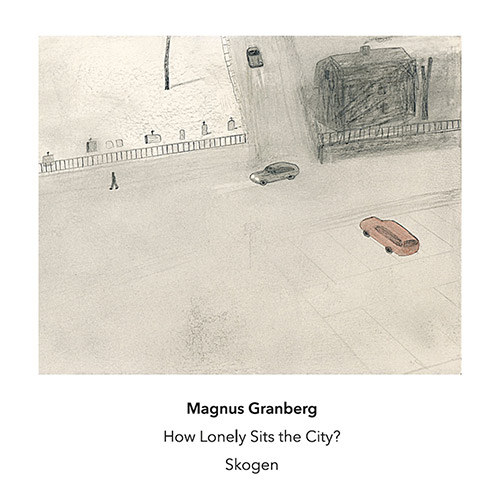




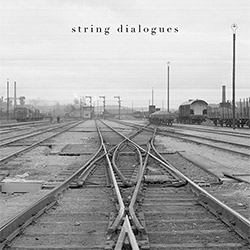
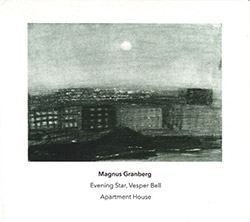





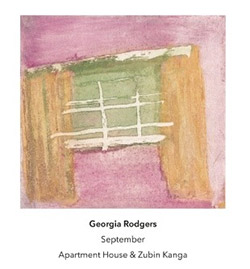

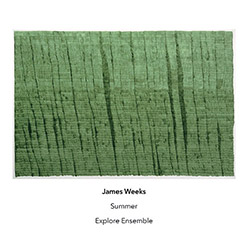
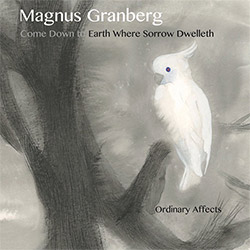

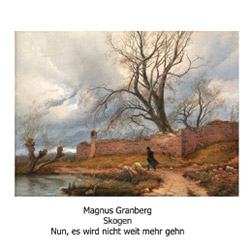




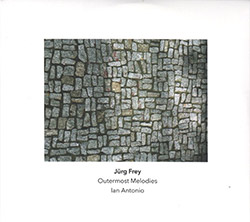



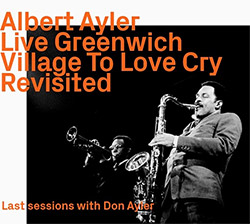

![Rodrigues, Ernesto / Nuno Torres / Guilherme Rodrigues: Whispers In The Moonlight - In Seven Movements [2CDs]](https://www.teuthida.com/productImages/misc4/35765.jpg)



![Cocks, Laura: FATHM [VINYL]](https://www.teuthida.com/productImages/misc4/36055.jpg)










![Ackerley / Prymek / Turner: All Hope With Sleeping Minds [CASSETTE]](https://www.teuthida.com/productImages/misc4/35950.jpg)
![Myers, David Lee : Tin Drop Tear [BOOK w/ DOWNLOAD]](https://www.teuthida.com/productImages/misc4/36030.jpg)



![Schindler, Udo / Sandy Ewen / Damon Smith: Munich Sound Studies Vols. 4, 5 & 6 [3 CDs]](https://www.teuthida.com/productImages/misc4/35966.jpg)






![Turbulence Orchestra & Sub-Units: Smear Out the Difficulties (Double Live) [2 CDs]](https://www.teuthida.com/productImages/misc4/36048.jpg)
![Perelman, Ivo / Tyshawn Sorey: Paralell Aesthetics [2 CDs]](https://www.teuthida.com/productImages/misc4/35871.jpg)


![Sjostrom, Harri: SoundScapes #4 Festival Berlin 2023 [3 CDs]](https://www.teuthida.com/productImages/misc4/35874.jpg)



![Glenn, Jordan: Flustered [CASSETTE]](https://www.teuthida.com/productImages/misc4/35948.jpg)


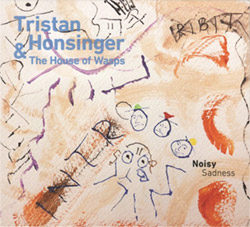
![Lindorff-Ellery, Evan: Church Recordings from Monhegan [CASSETTE]](https://www.teuthida.com/productImages/misc4/35949.jpg)
![Schindler, Udo / Werner Dafeldecker / Gunnar Geisse: Travelling Sound Images - Cognitive Transfers [Trio]](https://www.teuthida.com/productImages/misc4/35767.jpg)

![Egberth, Dennis: The Dennis Egberth Dynasty [VINYL]](https://www.teuthida.com/productImages/misc4/35549.jpg)


![Schindler, Udo / Rieko Okuda / Eric Zwang Eriksson: Disturbed Terrains [2 CDs]](https://www.teuthida.com/productImages/misc4/35330.jpg)






![Olencki, Weston : Pearls Ground Down To Powder [VINYL]](https://www.teuthida.com/productImages/misc4/35956.jpg)
![Myers, David Lee: Oculus [2CDs]](https://www.teuthida.com/productImages/misc4/35857.jpg)


![dustsceawung: dustsceawung [CASSETTE w/ Download]](https://www.teuthida.com/productImages/misc4/35753.jpg)




![Halls of the Machine: Atmospheres For Lovers And Sleepers [CASSETTE w/ DOWNLOAD]](https://www.teuthida.com/productImages/misc4/35806.jpg)



![AHC (Alexander Cooper): Lase [2 CDs]](https://www.teuthida.com/productImages/misc4/35754.jpg)



![Fagaschinski, Kai / Yan Jun : Graveyard Processions [VINYL w/ DOWNLOAD]](https://www.teuthida.com/productImages/misc4/35474.jpg)
![Brant, Cody / Carl Kruger: Smoke Detail [CASSETTE w/ DOWNLOAD]](https://www.teuthida.com/productImages/misc4/35551.jpg)








![Zorn, John / JACK Quartet: The Complete String Quartets [2 CDs]](https://www.teuthida.com/productImages/misc4/35609.jpg)

![Lonsdale, Eden: Dawnings [2 CDs]](https://www.teuthida.com/productImages/misc4/35480.jpg)







![Sanna, Claudio: Compositori Sardi Contemporanei II [2 CDs]](https://www.teuthida.com/productImages/misc4/35317.jpg)






![Zurria, Manuel: Fame di Vento [3 CDs]](https://www.teuthida.com/productImages/misc4/35167.jpg)


![Electric Bird Noise / Derek Roddy: 8-10-22 [CD EP]](https://www.teuthida.com/productImages/misc4/35970.jpg)








![Elephant9 : Mythical River [VINYL]](https://www.teuthida.com/productImages/misc4/34624.jpg)



![Elephant9 with Terje Rypdal: Catching Fire [VINYL 2 LPs]](https://www.teuthida.com/productImages/misc4/35355.jpg)
![Deerlady (Obomsawin, Mali / Magdalena Abrego): Greatest Hits [VINYL]](https://www.teuthida.com/productImages/misc4/34876.jpg)







![Surplus 1980: Illusion of Consistency [CD]](https://www.teuthida.com/productImages/misc4/35069.jpg)
![Staiano, Moe: Away Towards the Light [VINYL + DOWNLOAD]](https://www.teuthida.com/productImages/misc4/35037.jpg)



![Caveira (Gomes / Sousa / Abras / Ferrandini): Ficar Vivo [VINYL]](https://www.teuthida.com/productImages/misc4/34643.jpg)
![Coley, Byron: Dating Tips for Touring Bands [VINYL]](https://www.teuthida.com/productImages/misc4/17906.jpg)

![Lost Kisses: My Life is Sad & Funny [DVD]](https://www.teuthida.com/productImages/misc4/lostKissesDVD.jpg)